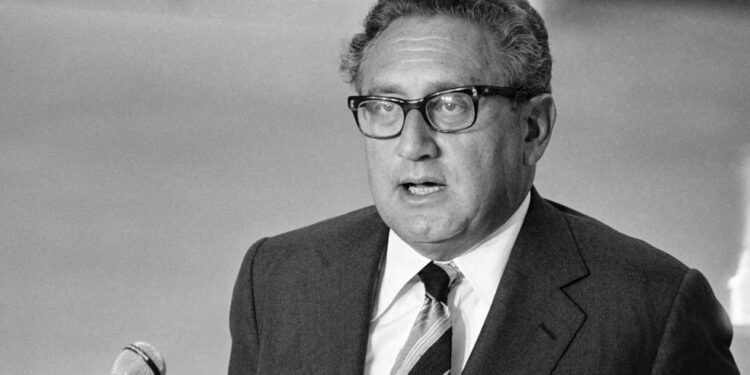Henry Kissinger died yesterday at the age of 100. As historian Margaret MacMillan explains in her book Nixon and Mao, Kissinger shared the same obsession as Richard Nixon: he wanted to change the course of History. To the great misfortune of the United States, these two men succeeded.
Kissinger was a realist. He never bothered with moral considerations.
A great seducer of the media, people who knew him personally report that he gave two speeches. One for the general public, reassuring, almost superficial, and another for the initiated, cynical and always ready to defend the interests of the rich American economic elites. Kissinger had also been the protégé of Nelson Rockefeller, who had spotted his great talents.
Kissinger was admired for his diplomacy in the Near and Middle East and praised for his policy of détente with the USSR. But he was also hated by many for his catastrophic and bloodthirsty policy in Vietnam or for his role in the fall of Salvador Allende.
However, his major achievement remains the rapprochement in 1972 between Mao Zedong’s China and the United States, when he was Nixon’s secretary of state.
Consequences of rapprochement with China
Nixon and Kissinger believed that a Sino-American rapprochement would force the Soviets to further arm their border with China. Indeed, that is what will happen. This military effort with colossal costs will contribute to the fall of the USSR.
But rapprochement with China will have a huge price that is becoming more and more evident as the years go by. Since 1972, the United States has carried out large transfers of technology to China in all areas, including the military industry. They opened their market to Chinese products. They opened up China.
However, China in the 1970s was doing very badly. Its population was soaring, while its industrial production and agricultural output were declining. Without U.S. help, China’s communist regime would likely have collapsed.
Build an even more formidable opponent
The whole paradox of Kissinger’s diplomacy is here. By seeking to destroy the USSR, he ultimately helped build an even more formidable adversary, China.
Until the end of his life, Kissinger refused to recognize that he was one of the main architects of the strengthening of China against the United States. Oddly enough, while he was obsessed with the Russian communist threat, the Chinese communist threat never really worried him.
A little before his death, he even visited China, one very last time.
Kissinger and Nixon succeeded in changing the course of History. But not in the way they would have liked.
The world today, with the rivalry between China and the United States at its heart, is in large part the result of Kissinger’s haphazard diplomacy.



